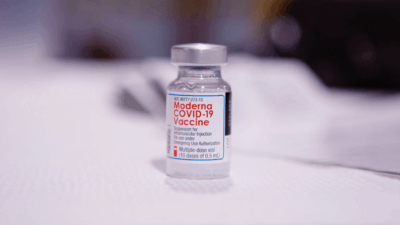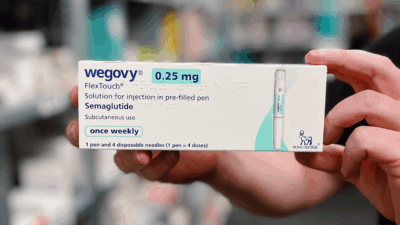Ozempic-like Drug Shows Signs of Mitigating Effects of Parkinson’s Disease
A GLP-1 medication from French drugmaker Sanofi — similar to Ozempic — was found to slow Parkinson’s in a small mid-stage trial.

Sign up for smart news, insights, and analysis on the biggest financial stories of the day.
A GLP-1 medication from French drugmaker Sanofi — similar to Novo Nordisk’s Ozempic and Eli Lilly’s Mounjaro— was found to slow disease progression in a small mid-stage trial of early Parkinson’s patients.
While further research is needed, it seems like every other day more possible uses are being discovered for the already immensely popular class of diabetes and weight loss drugs.
A Million and One Uses
In the past few years, medications like diabetes treatment Ozempic, its weight-loss cousin Wegovy, and Mounjaro have ascended to “wonder drug” status by mimicking naturally occurring hormones and making patients feel full. But the habit-curbing doesn’t seem to stop just at eating. In some instances, patients have reported less desire to smoke, drink alcohol, use drugs, gamble, compulsively shop, and even bite their nails.
And now, there’s evidence that Sanofi’s drug lixisenatide — which the company says it took off the market last year for business reasons — might be able to treat a neurological condition that causes tremors and muscle stiffness in roughly 8.5 million people globally:
- In a year-long trial that followed 156 patients with early Parkinson’s disease, the half treated with a daily injection of lixisenatide exhibited less progression of motor disability than those who took a placebo, according to a study published in the New England Journal of Medicine. Both groups took their usual Parkinson’s medications as well.
- The differences weren’t major, but the Parkinson’s mitigating effects found in the lixisenatide group lasted for two months after the trial had ended and subjects had stopped taking the drug.
Federal Spending: Public funding has quickly ramped up for GLP-1s in the past few years. Medicare is prohibited from paying for weight loss drugs, but it does cover Ozempic for diabetes patients, and just recently started taking on the cost of Wegovy for people at risk of heart attacks and strokes. Last month, KFF — a non-profit that researches public health policy — published an analysis that found gross Medicare spending on Ozempic, Rybelsus, and Mounjaro has skyrocketed in recent years, increasing from $57 million in 2018 to $5.7 billion in 2022.











